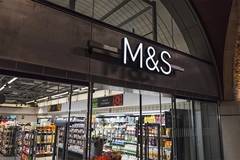
- Industry news
Industry news
- Category news
Category news
- Reports
- Key trends
- Multimedia
- Journal
- Events
- Suppliers
- Home
- Industry news
Industry news
- Category news
Category news
- Reports
- Key trends
- Multimedia
- Events
- Suppliers
Barry Callebaut Delivers Strong Growth

The Industrial business recorded sales volumes of 586,947 tonnes, which represents an organic growth of 10.8% compared to the same prior-year period. Sales volumes of Cocoa products sold to third-party customers amounted to 107,495 tonnes.
28/06/07 Cocoa and chocolate supplier Barry Callebaut has delivered dynamic growth in the first nine months of the current fiscal year as sales volumes rose to 838,349 metric tonnes, which corresponds to an organic growth rate of 6.0% – more than twice the growth rate of the global chocolate market. Volumes were driven by an excellent performance of the Food Manufacturers business unit, especially in Europe, as an increasing number of previously fully integrated food manufacturers began to outsource their chocolate needs to specialized partners. Sales revenue rose by 4.1% to CHF 3,285.0 million. A part of this increase was due to exchange rate effects, primarily the appreciation of the Euro against the company’s reporting currency, Swiss franc. Excluding the Brach’s consumer business in North America, sales volumes rose 7.4% and sales revenue 6.1%. The company intends to launch a EUR 350 million Fixed Rate Note to improve its financial flexibility and average maturity of its debt profile and to benefit from currently favorable capital market conditions.

Patrick De Maeseneire, CEO of Barry Callebaut, said: “I am very pleased that Barry Callebaut continued on its growth path and was again able to substantially outpace the growth of the global chocolate market in the first nine months of the current fiscal year. During this period, we won three major supply contracts with prestigious international consumer goods companies Nestlé, Hershey and Cadbury. Thanks to our global presence from the bean to the shelf and our innovative strength, we have been able to establish ourselves as the outsourcing partner of choice in the chocolate industry.”
The Industrial business segment recorded sales volumes of 586,947 tonnes, which represents an organic growth of 10.8% compared to the same prior-year period. Sales volumes of Cocoa products sold to third-party customers amounted to 107,495 tonnes, which is a plus of 12.1%. Volumes were pushed to compensate for the margin decline caused by the deteriorating combined (cocoa) ratio.
Sales volumes in the Food Manufacturers business unit reached 479,452 tonnes, representing a 10.5% rise over the same period in the previous fiscal year. The business unit benefited from higher outsourcing volumes as an increasing number of integrated consumer goods companies shift their focus towards sales and marketing and are seeking to source liquid chocolate from third parties. As a global industry leader, Barry Callebaut is well positioned to further benefit from this trend.
Barry Callebaut expects to sign the final agreements with Nestlé and Hershey soon and will start to supply both companies in the next few months. Sales revenue recorded in the Industrial business segment achieved growth of 10.1% to CHF 1,891.1 million, compared to CHF 1,717.4 million for the same prior-year period. Sales revenue in the Cocoa business unit rose by 7.5% to CHF 379.8 million, up from CHF 353.3 in the prior year, as a result of higher sales volumes, despite the afore-mentioned lower average sales prices resulting from the lower combined (cocoa) ratio. The Food Manufacturers business unit achieved sales revenue growth of 10.8% to CHF 1,511.3 million, up from CHF 1,364.1 million for the same prior-year period, driven by higher sales volumes.
Looking ahead, CEO Patrick De Maeseneire said: “An increasing number of previously fully integrated food manufacturers are beginning to outsource their chocolate needs. Our supply agreements with Nestlé, Hershey and Cadbury confirm the accelerating outsourcing trend in the industry, both in Europe and in the United States. Barry Callebaut is well positioned to further benefit from this market development. We continue to shape our company through geographic expansion, cost leadership and innovation. The planned launch of a bond will give us the necessary flexibility to continue on our successful growth path. As already mentioned earlier this year, higher raw material prices will have a negative impact on our financial results in fiscal year 2006/07. The deterioration of the combined (cocoa) ratio is expected to have a negative effect of around CHF 25 million. Higher milk prices will also weigh, but are expected to be partly offset by price increases. Despite these developments, we are confident that we will reach our 3-year financial targets through 2007/08 and are on a steady growth path for the future.”










